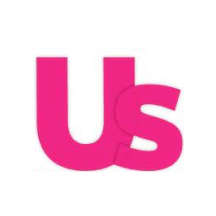

By Nicholas P. Brown and Alexander Marrow
NEW YORK/LONDON (Reuters) -Nestle wants out of mass-market vitamins. But a move by consumers towards more expensive, science-backed products risks complicating the Swiss conglomerate's effort to fetch a high price for its underperforming brands.
The $250 billion consumer food giant said in July it was launching a strategic review of low-growth, low-margin brands in the vitamins, minerals and supplements category, a prelude to a possible sale reconfirmed by Nestle after new CEO Philipp Navratil took the helm in September.
However, consumers in the $193 billion global supplement market are increasingly choosing supplements with scientifically proven ingredients, according to consultancy McKinsey & Co's 2024 "Future of Wellness" report and more than 15 interviews with industry experts.
That poses a challenge for Nestle, which has earmarked for possible sale Nature’s Bounty, Osteo Bi-Flex, and Puritan’s Pride - all affordable mainstream brands - as well as its U.S. private label business.
Furthermore, the supplement market is fragmented, and its regulatory landscape is in flux, adding risk to any acquisition. Industry players are signaling disinterest, Reuters' reporting found - but private equity funds are more likely to be in play.
The brands under review generate 2.8% of Nestle's annual sales, or around $1.25 billion. Nestle, which declined to comment for this story, has said it wanted to double down on the premium dietary supplement labels it is holding onto, such as Solgar, which sells everything from standard vitamins to products promoting brain health, hair growth and stress reduction.
PRIVATE EQUITY COULD MAKE A PLAY
Nestle acquired these vitamin brands in 2021 for $5.75 billion - the third-largest acquisition in the vitamin, mineral and supplement space in at least the last 12 years, according to data from PitchBook.
Matching those valuations will be a tall order amid a "huge wave" of interest by consumers in brands whose product claims have been rigorously tested in clinical settings, said Marley Brocker, an analyst with market research firm IBISWorld. The supplement industry is now overlapping with the more broadly defined wellness category, she added.
Industry rivals like Danone and Unilever are signaling a preference for higher-end brands with clear growth potential.
A consumer-focused investment banker, speaking on condition of anonymity, said Danone and Unilever have been more cautious of the mass supplements market, pointing to strict European consumer protection regulation that makes it difficult to make lofty marketing claims about a product's health benefits.
A senior source at Unilever, while stopping short of fully dismissing a deal for Nestle's brands, said any acquisitions the company makes must be of science and tech-led brands in fast-growing sectors.
Return on investment is also uncertain in a highly fragmented industry, said Mintel analyst David Hamlette. None of the brands Nestle may sell owns more than 2.1% of the U.S. vitamin market, according to share data from Euromonitor International.
The future of the U.S. regulatory landscape is another wild card: in March, U.S. Health Secretary Robert F. Kennedy, Jr., announced he wants to tighten a federal approval process for new food additives known as the "Generally Regarded as Safe" pathway, or GRAS- a move that, if finalized, could increase scrutiny of new ingredients. The Department of Health and Human Services has not officially proposed the rule change, though industry observers expect one soon. A public comment period would follow.
The proposal would make it harder for companies to market new food additives without U.S. Food and Drug Administration review, fetching opposition from the Council for Responsible Nutrition, a supplement industry trade group. A better solution is "to provide FDA with the resources" to enforce current rules, said Andrea Wong, CRN's senior vice president of scientific and regulatory affairs.
In a statement, an HHS spokesperson said tightening GRAS would "ultimately benefit the dietary supplement marketplace, along with conventional foods, by making both safer."
The disinclination toward Nestle's mass-market vitamins went beyond direct competitors in the packaged goods space.
GNC, a supplement retailer that also sells its own brands, said it was focused on innovating within its own portfolio, and on brands “that align with our science-backed standards," CEO Michael Costello told Reuters on October 31.
Yet the potential upside remains significant: the global dietary supplement market, pegged at $192.7 billion in 2024, is forecast to explode to $414.5 billion by 2033, according to market research firm Grand View.
Such growth prospects may entice buyout funds, said Alex Evans, a partner at L.E.K. Consulting who leads the firm's health & wellness practice.
These players would, however, drive a hard bargain, as they would not be able to generate the same cost savings of an industry player. "Private equity seems to be the most likely option, and yes - valuations might suffer," said Kai Lehmann, portfolio manager at Nestle stockholder Flossbach von Storch.
(Reporting by Nicholas P. Brown in New York and Alexander Marrow in London; editing by Lisa Jucca and Anna Driver)

 Reuters US Business
Reuters US Business
 CNBC
CNBC Butler Eagle
Butler Eagle Raw Story
Raw Story CNN
CNN Salon
Salon US Magazine
US Magazine The Daily Mining Gazette Sports
The Daily Mining Gazette Sports